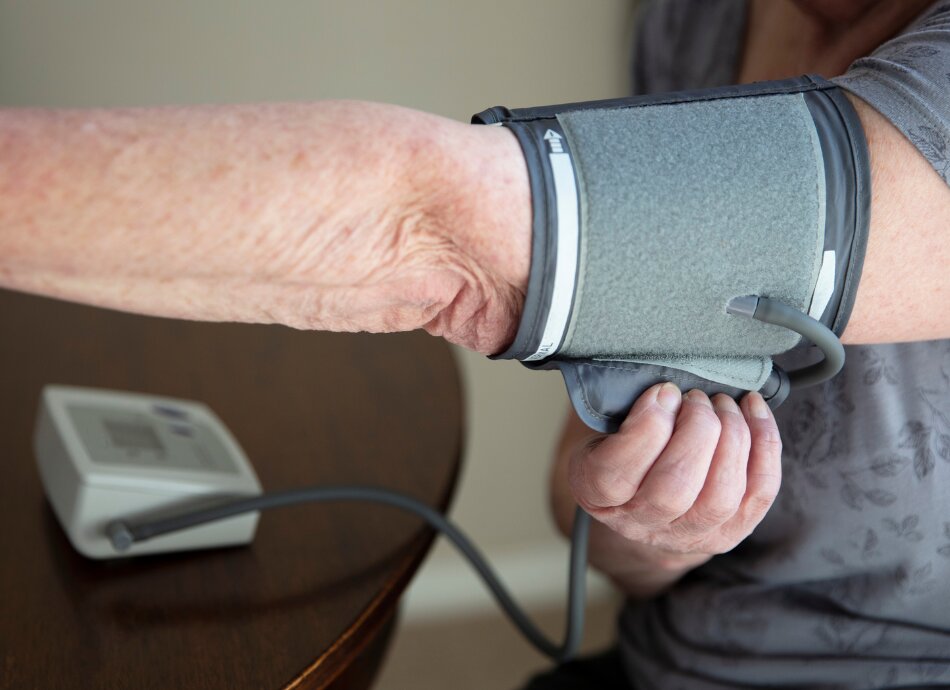Diltiazem
Sounds like 'dil-tye-ah-zem'
Key points about diltiazem
- Diltiazem is used to treat high blood pressure and irregular heart beat, and to prevent chest pain (angina).
- Diltiazem is also called Cardizem CD®.
- Find out how to take it safely and possible side effects.

Diltiazem belongs to a group of medicines called calcium channel blockers or calcium antagonists. It doesn’t affect the amount of calcium in your blood or bones.
Diltiazem is used to treat high blood pressure (hypertension) and to prevent chest pain (angina). It may help you to do more exercise and decrease how often you get chest pain.
Diltiazem may also be used to control your heart rate if you have a fast or irregular heartbeat (eg, atrial fibrillation).
It works by relaxing and widening blood vessels which helps to lower blood pressure. It also reduces the force and rate of your heartbeat which helps with angina.
In Aotearoa New Zealand diltiazem is available in capsules of different strengths (120 mg, 180 mg and 240 mg).
- The dose of diltiazem will be different for different people. Your doctor will tell you which dose is right for you.
- Diltiazem capsules are slow release (they release the medicine gradually over time) and are usually taken once a day.
- Always take your diltiazem exactly as your doctor has told you. The pharmacy label on your medicine will tell you how much diltiazem to take, how often to take it, and any special instructions.
- Timing: Diltiazem capsules are usually taken once a day. Take your dose at about the same time each day.
- Food: You can take diltiazem capsules with or without food.
- Swallow the capsules whole with a glass of water: Don't open or chew them. The slow-release capsules have been designed to release the right dose of medicine slowly. If you open or chew them, they won't work properly.
- Missed dose: If you forget your dose, take it as soon as you remember. But if it's nearly time for your next dose, just take the next dose at the right time. Don't take double the dose.
Here are some things to know when you're taking diltiazem. Other things may be important as well, so ask your healthcare provider what you should know about.
- Other medicines: Diltiazem interacts with some medicines, herbal supplements and rongoā Māori, so check with your doctor or pharmacist before starting diltiazem and before starting any new products.
- Driving: Diltiazem can make you dizzy so be careful when you're driving or using tools until you know how this medicine affects you.
- Alcohol: Limit drinking alcohol while you’re taking diltiazem. Alcohol may increase your chance of side-effects, such as feeling dizzy or light-headed.
- Don’t stop taking diltiazem suddenly: Speak to your healthcare provider before stopping.
- Pregnancy or breastfeeding: Tell your doctor if you’re pregnant, planning a pregnancy or want to breastfeed your pēpi.
- Angina: If you’re taking diltiazem for angina and you continue to have angina tell your doctor.
- Physical activity: When you start taking diltiazem don’t overdo physical activity. Improve your fitness slowly over time.
- Grapefruit, grapefruit juice or sour/Seville oranges: These may react with diltiazem, talk to your pharmacist about this. See grapefruit and medicines(external link).
- Appearance: There are different strengths of this capsule. If the colour or appearance of your medicine looks different than before, always check with your pharmacist.
Like all medicines, diltiazem can cause side effects, although not everyone gets them. Often side effects improve as your body gets used to the new medicine.
| Side effects | What should I do? |
|---|---|
|
|
|
|
|
|
Read more about medicines and side effects and reporting a reaction you think might be a side effect.
The following links have more information on diltiazem.
Medsafe consumer information sheets:
Cardizem CD(external link)
Diltiazem CD (Clinect)(external link)
Diltiazem (external link)New Zealand Formulary Patient Information (te reo Māori)(external link)(external link)
References
- Diltiazem hydrochloride(external link) New Zealand Formulary
- Medical management of stable angina pectoris(external link) BPAC, NZ, 2011
- Hypertension in adults – the silent killer(external link) BPAC, NZ, 2024
- An update on managing patients with atrial fibrillation(external link) BPAC, NZ, 2017
Brochrues

Medicines and side effects
Healthify He Puna Waiora, NZ, 2024

Health Quality and Safety Commission, NZ, 2019 English, te reo Māori
Credits: Healthify editorial team. Healthify is brought to you by Health Navigator Charitable Trust.
Reviewed by: Stephanie Yee, Pharmacist, Auckland
Last reviewed:





